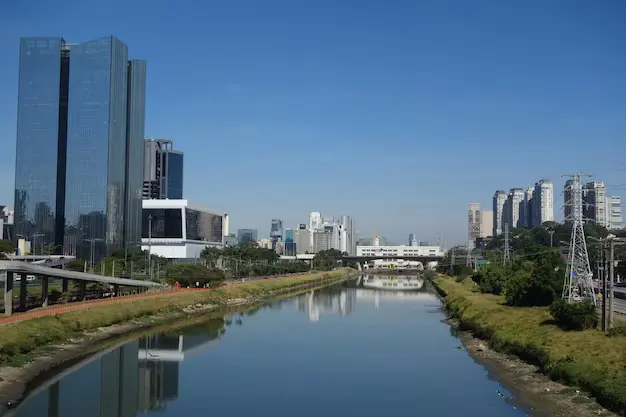Pollution in the Tietê River has nearly doubled in two years, with the affected area now stretching 160 kilometers, according to NGO SOS Mata Atlântica.
Compared to 2021, that’s an 88% increase. In contrast, only 85 kilometers were polluted then.
This water isn’t suitable for home use, fishing, or drinking. After a decline since 2010, pollution is rising again.
Gustavo Veronesi, NGO coordinator, points to post-pandemic economic recovery as a reason. Additionally, he mentions inadequate sewage connections in São Paulo’s metro area.
Veronesi calls for improved housing policies and better sanitation. “How can people connect to sewage systems without decent homes?” he asks.

Despite the bad news, water quality has improved in regions farther from the city. Therefore, not all trends are negative.
In March, São Paulo’s government pledged significant investment for Tietê’s cleanup. Specifically, they’ll spend around 1.029 billion euros by 2026.
This plan covers the expansion of sewage networks and better wastewater treatment. Furthermore, they aim to restore affected wildlife and plants.
Background
This situation presents a critical concern for public health and environmental well-being. Importantly, the Tietê River is central to São Paulo’s ecosystem.
When its waters are dirty, the negative effects ripple through the community. Hence, immediate action is imperative.
Interestingly, the rise in pollution correlates with economic growth after the pandemic. This suggests a complicated trade-off.
A booming economy can sometimes exacerbate environmental issues. Therefore, future plans should balance both.
The government’s pledge to clean the Tietê is a positive step. However, this is not the first initiative of its kind.
Earlier attempts started 30 years ago, showing a slow pace of progress. This time, the public will expect quicker, more tangible results.
The involvement of NGOs like SOS Mata Atlântica is essential. They provide an extra layer of accountability.
Also, their data can help tailor government policies more effectively. Finally, the global implicat

